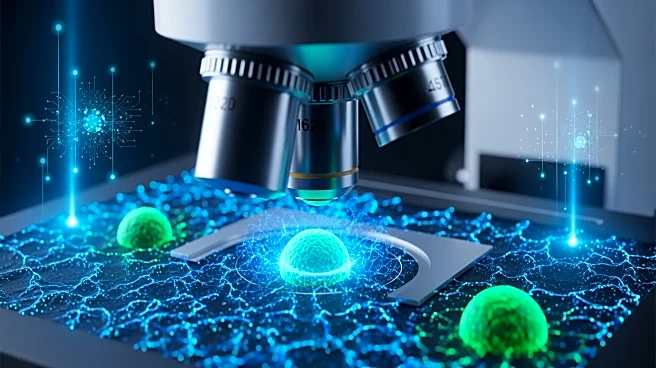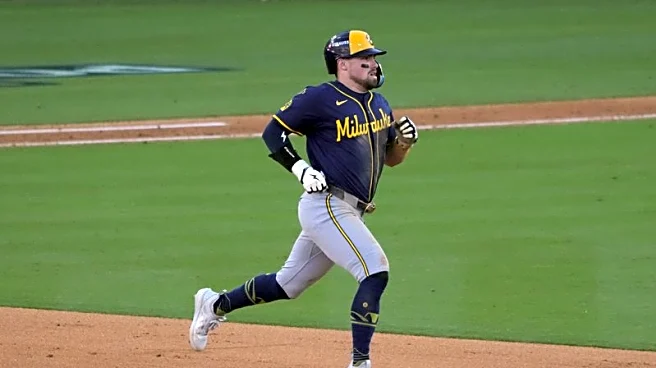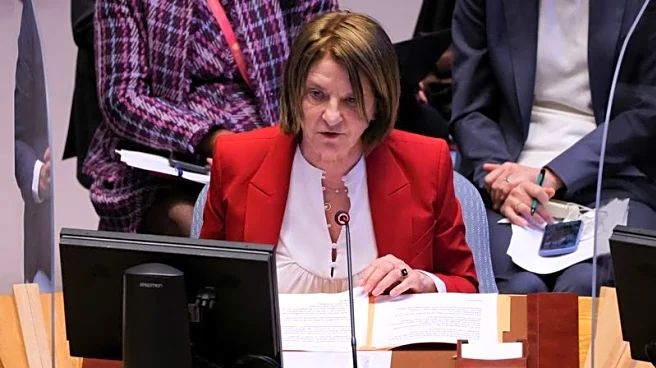What's Happening?
The remains of a hostage in Gaza have been returned to Israel, marking a significant development under the U.S.-brokered ceasefire. This follows the return of 20 hostages' remains by Hamas since the ceasefire began
on October 10. The ceasefire aims to de-escalate the conflict between Israel and Hamas, which has been described as the deadliest and most destructive war between the two parties. The military wing of Hamas announced the recovery of an Israeli soldier's body, which was handed over to Israel. The Israeli military has not confirmed whether the remains belong to a soldier. The exchange process has been ongoing, with militants in Gaza releasing one to three bodies every few days. Israel has been releasing the remains of 15 Palestinians for each Israeli hostage returned, totaling 270 Palestinian bodies handed over so far.
Why It's Important?
The return of hostage remains underlines the fragile yet critical progress in the ceasefire negotiations mediated by the United States. This development is pivotal in reducing tensions and potentially paving the way for more comprehensive peace talks. The exchange of remains is a sensitive issue, impacting both Israeli and Palestinian families who seek closure. The ongoing conflict has resulted in significant casualties, with over 68,800 Palestinians reported killed in Gaza. The ceasefire and subsequent exchanges could influence future diplomatic relations and humanitarian efforts in the region. The situation remains complex, with accusations of genocide and disputes over casualty figures adding to the tension.
What's Next?
Further exchanges of remains are expected as part of the ceasefire agreement. The process is complicated by logistical challenges, including a lack of DNA testing kits in Gaza, which hampers identification efforts. The international community, particularly the United States, may continue to play a role in facilitating dialogue and ensuring compliance with the ceasefire terms. The humanitarian situation in Gaza remains dire, with ongoing needs for medical and reconstruction aid. The outcome of these exchanges could influence future peace negotiations and the broader geopolitical landscape in the Middle East.
Beyond the Headlines
The ethical and humanitarian dimensions of the conflict are profound, with both sides facing accusations of war crimes. The return of remains is not only a political gesture but also a deeply personal matter for the families involved. The ongoing conflict has highlighted the need for sustainable solutions to address the root causes of the violence and ensure long-term peace and stability in the region.










